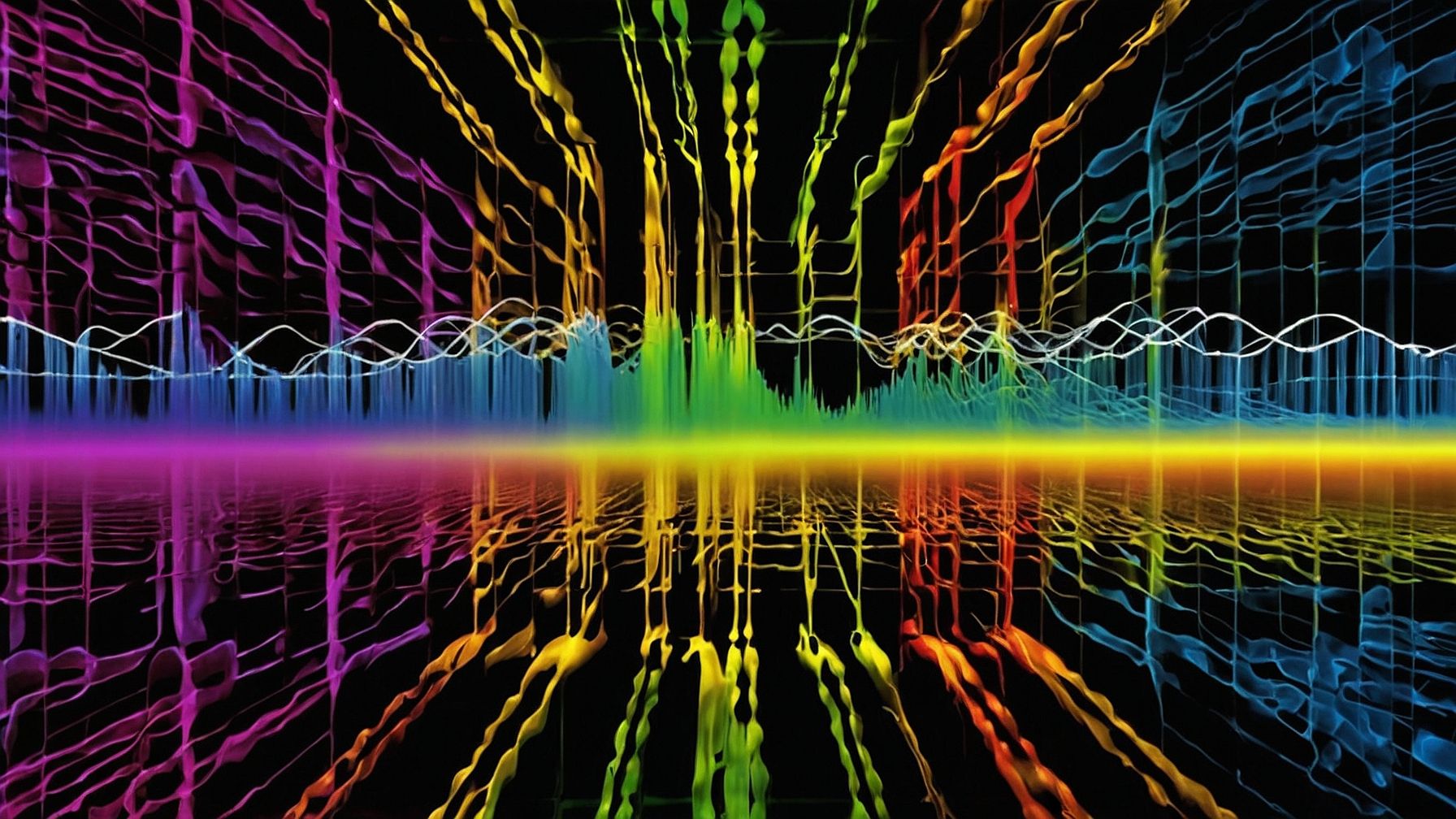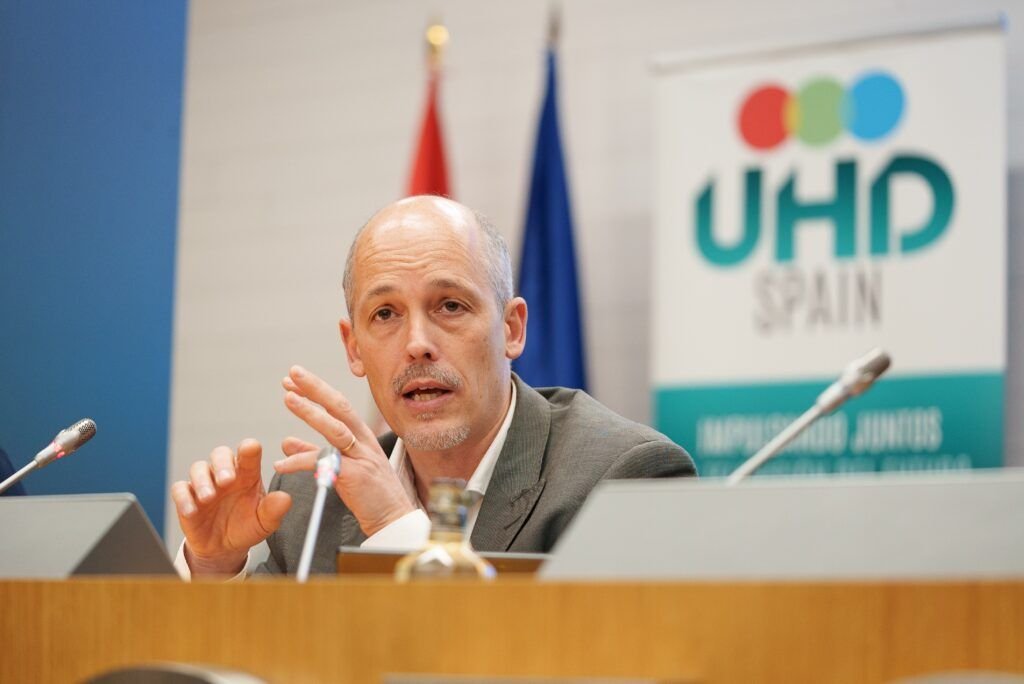MORE LIVE AND ULTRA HIGH DEFINITION CONTENT: UHD SPAIN TAKES A STAND ON THE USE OF THE RADIO SPECTRUM

- With the aim of proposing solutions to improve wireless connectivity in the production of television events, UHD Spain has prepared a document in which it states its position regarding the use of the radio spectrum.
- 5G technology with dedicated spectrum could be useful for recurring services in TV sets, sports stadiums or concert halls, among others.
In the past, TV cameras were connected by cables to a control center. Today, wireless connections are used in the 2400 MHz band, but they also have technical limitations, especially with Ultra High Definition. According to Xavier Redón, vice president of UHD Spain and Product Manager at Cellnex Telecom, “the spectrum allocated for this type of communications is limited, which presents a challenge for transmitting in UHD.”
In October 2023, UHD Spain conducted a proof-of-concept IP-based production of a live music concert. They connected four 4K-HDR cameras to a private 5G network, allowing all four cameras to transmit simultaneously and in Ultra High Definition. Redón said that this experience involved observing how this spectrum proved to be highly effective in improving the quality of the transmissions.
What is the Spectrum?
All electronic and wireless communications operate through electromagnetic waves, which are used in technologies such as Wi-Fi, radio, television and mobile telephony. The radio spectrum assigns these frequencies to each service. The International Telecommunication Union (ITU) decides on the use of the spectrum, and countries apply these agreements to ensure global functionality and avoid interference, thus enabling the production of compatible equipment anywhere in the world.
Request for dedicated spectrum for audiovisual connectivity
UHD Spain proposes to have dedicated spectrum for connectivity in audiovisual events. This would allow integrating communication into current production flows and using the same communication equipment as in the public 5G network. In addition, UHD Spain advises that this spectrum be operated by actors with the necessary technical training to ensure maximum efficiency and quality.
Xavier Redón emphasizes the importance of this measure: “At UHD Spain, we believe it is crucial to consider the needs of the audiovisual sector when temporarily allocating spectrum for wireless contributions in UHD, thus facilitating the production of events in temporary and occasional locations”.
Benefits of IP and 5G based production
This technology will enable delocalized production models, reducing costs and improving efficiency. In addition to all these positive aspects, it will help reduce the carbon footprint and facilitate work in rural and remote areas. For Redón, “the direct benefits for the public will include greater availability of live and Ultra High Definition content. This means an enhanced and more immersive experience for viewers”.
In summary, UHD Spain is at the forefront of implementing advanced technologies to enhance audiovisual production through 5G, seeking to ensure that spectrum allocation is appropriate for the needs of the sector and benefits both content producers and end viewers.
About UHD Spain
UHD Spain is a non-profit association created on January 26, 2021 to promote Ultra High Definition (UHD) in Spain. Currently there are already 39 associated companies: ADM, Agile Content, Ametic, Ateme, Atresmedia, Axión, Canal Sur, Canon, CCMA, Cellnex, Cires21, COITT, Dolby, Egatel, EPAM, Fenitel, Forta, Fraunhofer IIS, Grup Mediapro, Gsertel, Henneo, Hispasat, Hurí, Lavinia, Medina Media, Rohde & Schwarz, RTVE, Sapec, Secuoya, Synamedia, Tedial, Telecom CLM, Televés, TRedess, TVU Networks, UPM, Uteca, Vestel and Video-MOS.
Among the founding partners is the Universidad Politécnica de Madrid, in particular with professors and researchers from the E.T.S. de Ingenieros de Telecomunicación, who have been working on UHD issues since 2015 through the RTVE Chair. It should be noted that in Europe only five countries have professional associations on Ultra High Definition: Germany, France, United Kingdom, Italy and Spain.